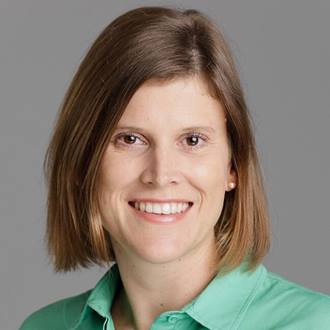This article is published in collaboration with Ramboll.
Baguio City is a popular tourist destination known for its pleasant weather and stunning nature, giving the city its nickname "the summer capital of the Philippines."
But Baguio—like the rest of the Philippines—is also prone to threats from earthquakes, cyclones, floods, drought, and landslides. When the city was hit by typhoons in 2009, more than 3,000 people were affected by flooding.
During floods, vulnerable and marginalized groups often fail to receive adequate warning. To meet this challenge head-on, city leaders in Baguio are adopting a gender transformative approach to developing flood early warning systems.
Catherine Grant, gender equality and social inclusion (GESI) lead for Ramboll in the program that supported Baguio explains what we miss when gender is overlooked in urban planning:
Why is gender an important consideration in urban planning?
There is rapid urbanization happening across Asia, which presents enormous challenges. Women and marginalized groups are being left behind and afforded fewer opportunities. Their behavior and movement are constricted by a range of factors that impact on their livelihoods and well-being and curtails their potential contributions to economies and societies.
"Often, what we see in GESI programming is an approach where you add gender, stir, and hope for the best."
This is also embedded in how cities are governed: Women have fewer opportunities to hold positions of power and participate in decision-making. That has a knock-off effect on how cities work, and who they work for and against. This, in turn, has real impact on liveability and the ability of cities to be places where everyone can thrive.

How can you ensure gender perspectives are successfully integrated into city planning?
In Baguio, we had a clear expression of interest from the city’s mayor. He had heard about the gender transformative approach pioneered by our partners on the project, Practical Action Consulting. This sort of high-level commitment was integral to bringing city agencies together on the project and setting it up for longer term realization.
At an agency level, we had government actors assigned to the project who were really invested and interested in learning about how they could better understand and design a flood early warning system that meets the needs of the most vulnerable and marginalized.
So, leadership buy-in is key. Often, what we see in gender equality and social inclusion programming is an approach where you add gender, stir, and hope for the best. Instead, key to our work in the wider program Baguio is part of is approaching all our activities with a gender, equality, and social inclusion lens. We hope to ensure that gender equality and social inclusion is never just an add-on but rather something that is ingrained and therefore more likely to be sustainable.
As consultants, it is tempting to go into a project and say, ’you should do this, this, and this.’ But that falls apart quite quickly once the project is complete and has been handed over, because there isn’t any ownership, and those charged with managing or implementing it may not feel any connection to what has been developed.
How did Baguio City embed gender in their disaster planning?
In Baguio, we helped the city develop their own roadmap toward a gender transformative flood early warning system, with actions written by those city actors charged with implementing them, and, importantly, using their own words. By being directly behind the actions and commitments, we’ve seen a real sense of empowerment emerge among stakeholders—as they have realized the actions they can take within their role and remit to advance gender equality and social inclusion in a meaningful way.
"I am a social practitioner, so my work is about making development work for as many people as possible in both a socially and environmentally responsible way.”
As consultants we need to ensure we specifically include a gender equality and social inclusion lens in our projects, from identifying how we will consider GESI in our project proposals, to budgeting for GESI, as well as providing project teams that demonstrate Ramboll’s commitment to equality, diversity, and inclusion.
How does gender fit into the wider conversation about climate change and sustainability?
Everyone has their own take on sustainability, but for me it is all about people—the actions we take for a sustainable future need to be based on equity, responsibility, and empathy. I am a social practitioner, so my work is about making development work for as many people as possible in both a socially and environmentally responsible way.
Fact BoxMaking Baguio City's flood early warning more inclusiveSince 1990, natural disasters have affected an estimated minimum of 186 million people in the Philippines. In Baguio, a Ramboll and Practical Action Consulting research team found that single parents evacuated under unsafe circumstances due to the challenges of evacuating with children. In some cases, parents wanted to evacuate earlier but found evacuation centers had not yet opened. These are just two examples from the research on vulnerability in flood early warning systems in Baguio. In response, city agencies are ramping up their communication to vulnerable groups on social media, in addition to other measures. This project is part of the ASEAN Australia Smart Cities Trust Fund, for which Ramboll is the implementing organization. It is a 6-year program supported by the Australian Government and the Asian Development Bank to catalyze people-centric smart city transformation in Southeast Asia. |
To learn more about the actions Baguio City took to integrate gender in their approach to flood early warning systems, read the project summary here. You can also read the full background study that catalyzed the project here.
This article was first published by Ramboll, a global architecture, engineering and consultancy company, on 7 March 2022. Click here to read the original article.
 Catherine Grant
Catherine Grant
Senior Consultant
Rambol
Catherine Grant is the gender equality and social inclusion expert at Ramboll.

